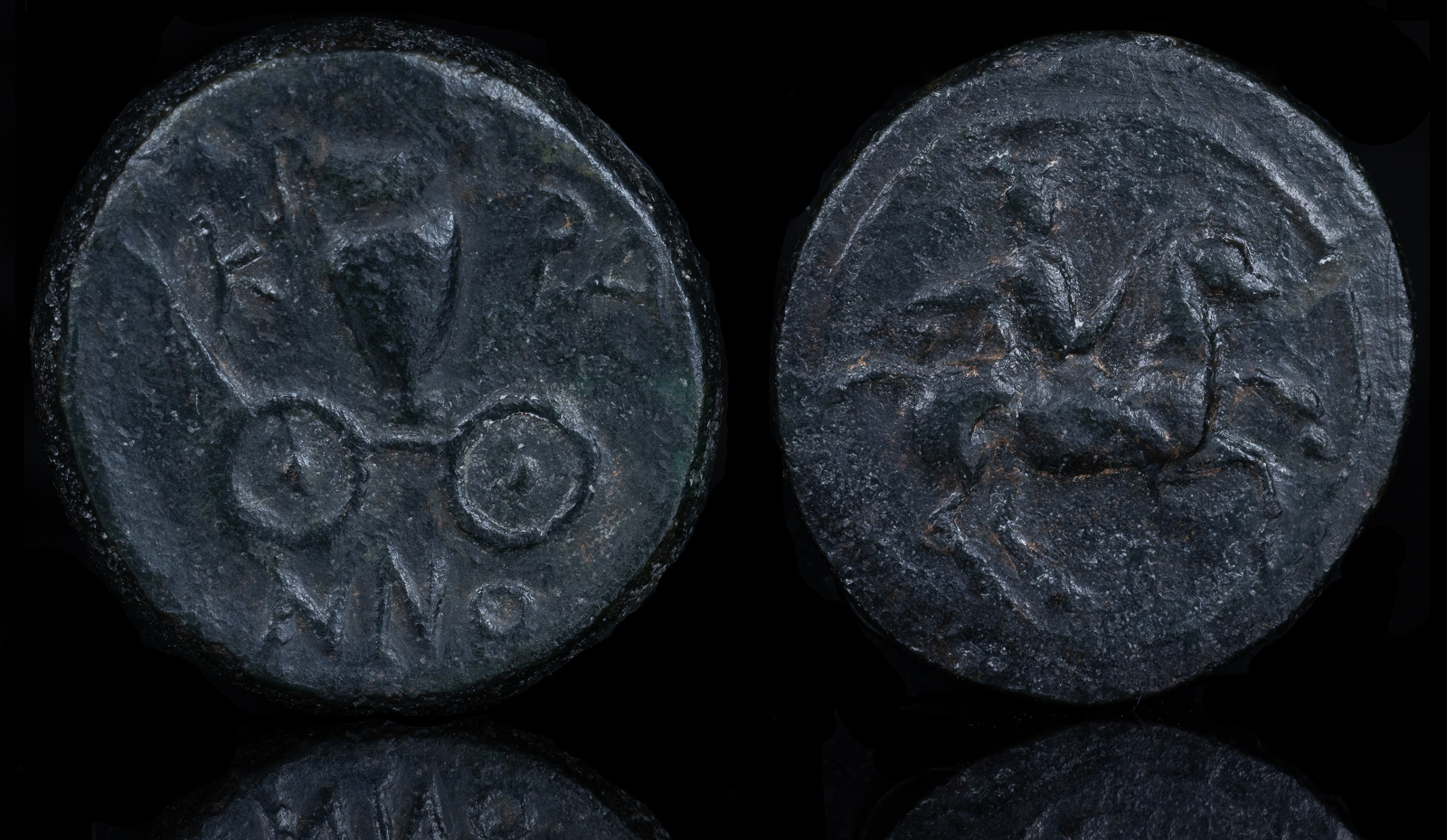
Thessaly, Krannon
Æ Dichalkon (16.5mm, 3.78g, 6h)
c. 350-300 BCE
Horseman riding r. R/ Hydria on cart
BCD Thessaly 119; SNG Copenhagen 43
The Battle of Krannon, which decided the fate of Greece in 322 BCE, was a bit like losing a game when the referee calls a dumb foul. Though the Macedonians won, it was on a technicality and since there weren’t instant replay cameras back then, the victory stood.
When Alexander the Great died, Athens and several other Greek states rose up against the Macedonians, who had most of their forces still in the East. Against just aging Antipater this should have been an easy victory, and initially things did go Greece’s way.
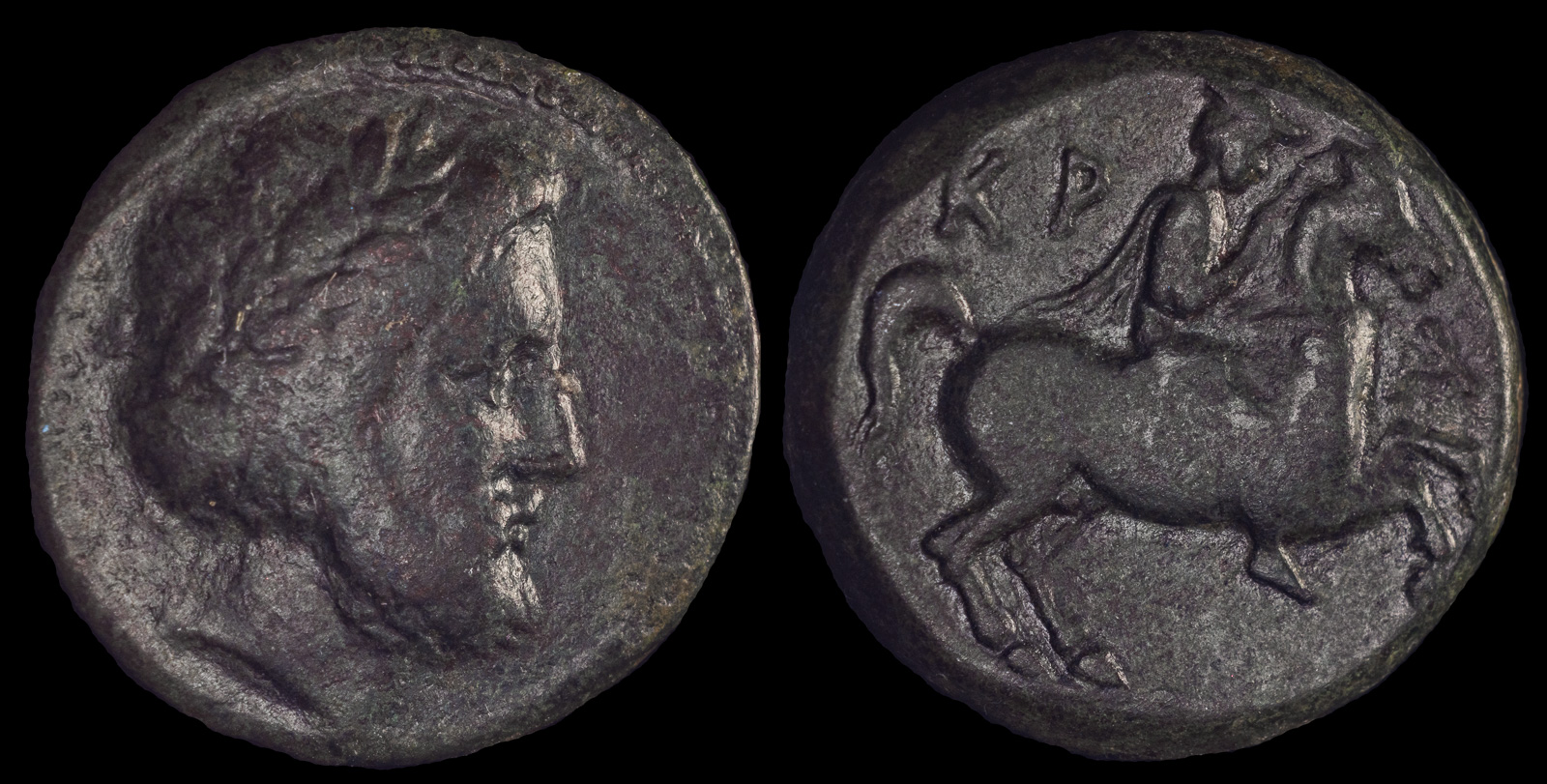
Krannon, Thessaly
ca. 4th century BCE
Ae Dichalkon 18mm, 5.5gms
Ox: Laureate and bearded bust of Poseidon right
Rx: KP – A; Horseman wearing petasos prancing right
BCD Thessaly II 117.2
Ex-BCD collection
They bottled Antipater and his forces up in Lamia, then dispatched in stunning fashion the releaving forces from Leonnatos, who died in the battle. However, the Greeks farted around too long and eventually another force came with one of Alexander‘s most vaunted generals – Krateros.
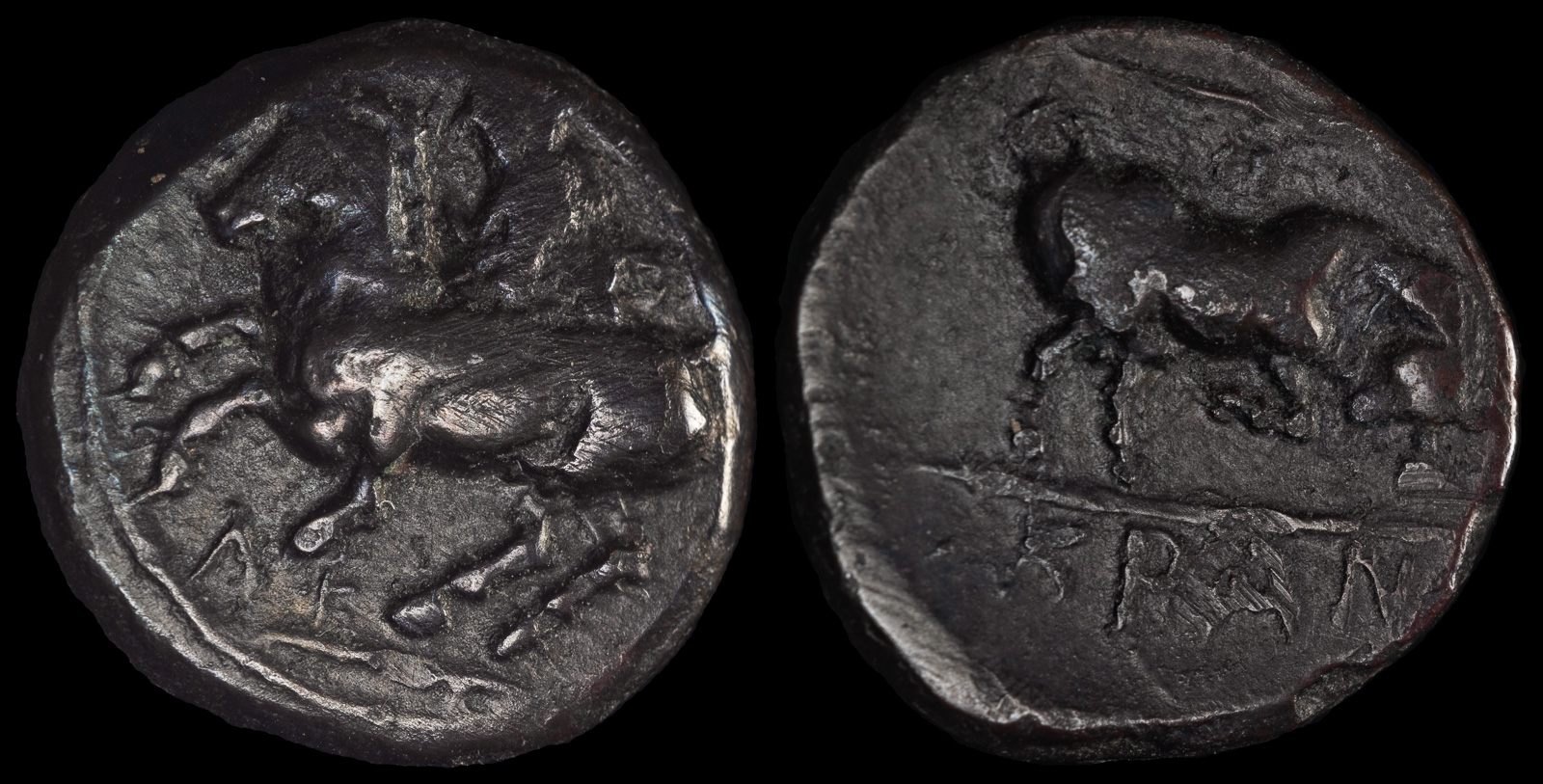
Krannon, Thessaly
ca. 300 BCE
Ae Chalkous 14.3mm, 2.2gms
Obv: Rider wearing petasos on horseback left, L E below left
Rev: Bull butting right, trident above; KPAN in exergue
Ex-BCD Collection
Since the Greeks had defeated Leonnatos with cavalry, they went with that offense again. While the cavalry went at it, the Athenians faced the vaunted Macedonian phalanx, who pushed them back. When the Greeks regrouped on high ground, the cavalry mistakingly thought the battle was lost and fled.
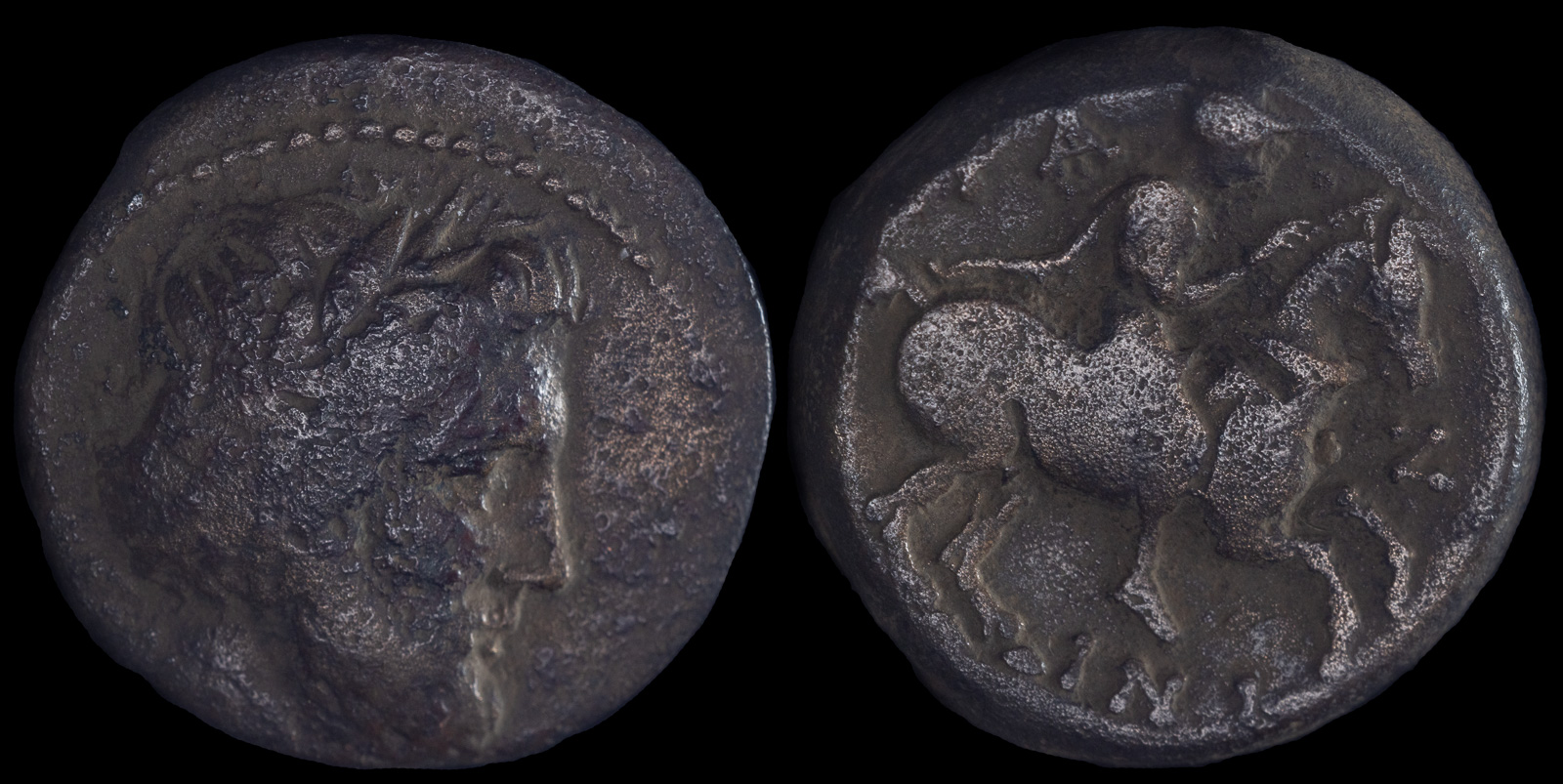
Thessaly, Krannon
circa 350-300 BCE
Æ Dichalkon 17mm, 5,11g
Laureate head of Poseidon (or Zeus) to right /
KPANO[NIΩN], warrior on horse rearing to right
Rogers 185 var. (legend); BCD Thessaly II 117.9
For such a decisive battle, there were remarkably few casualties on either side. However, because Antipater and Krateros now commanded the battlefield, the referees ruled in their favor. While Athens did request a rematch, the Macedonians deftly took several Thessalian cities and the rest sued for peace. With their allies gone, Athens had no choice but to surrender unconditionally.
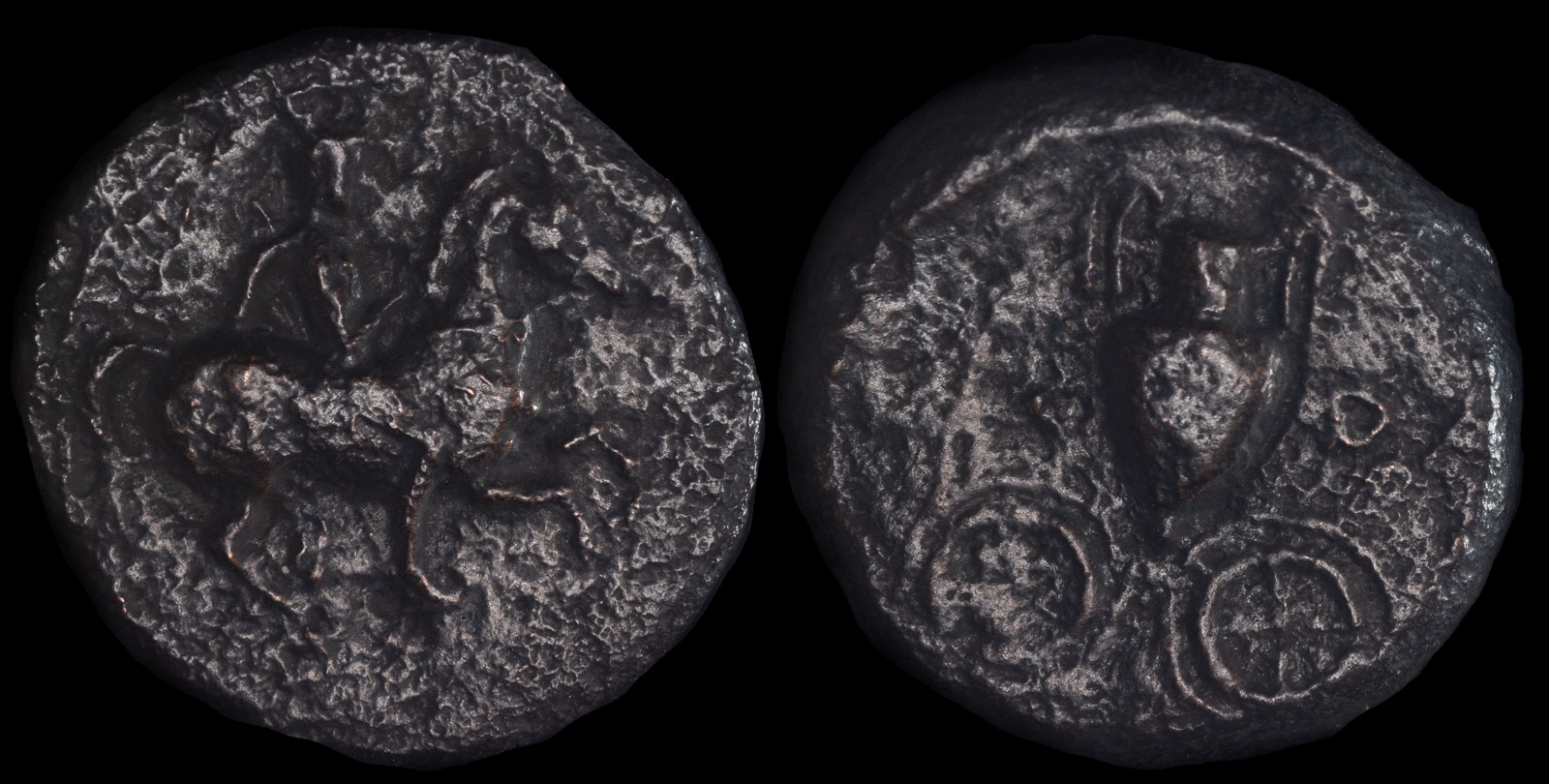
Thessaly, Krannon
circa 350-300 BCE
Æ Dichalkon 16mm, 3,53g
Rider on horseback right, wearing petasos and chiton; K to upper left /
K PA/NNO around from upper left, hydria on cart with long handle to left
BCD Thessaly II 119.4
According to Athenaios, “In Krannon the water is slightly warm and keeps wine that is mixed into it this way for two or three days.”
Lysimachos is born in Krannon or Pella.
Antipater and Krateros defeat Athens and the Aetolian League at the Battle of Krannon.